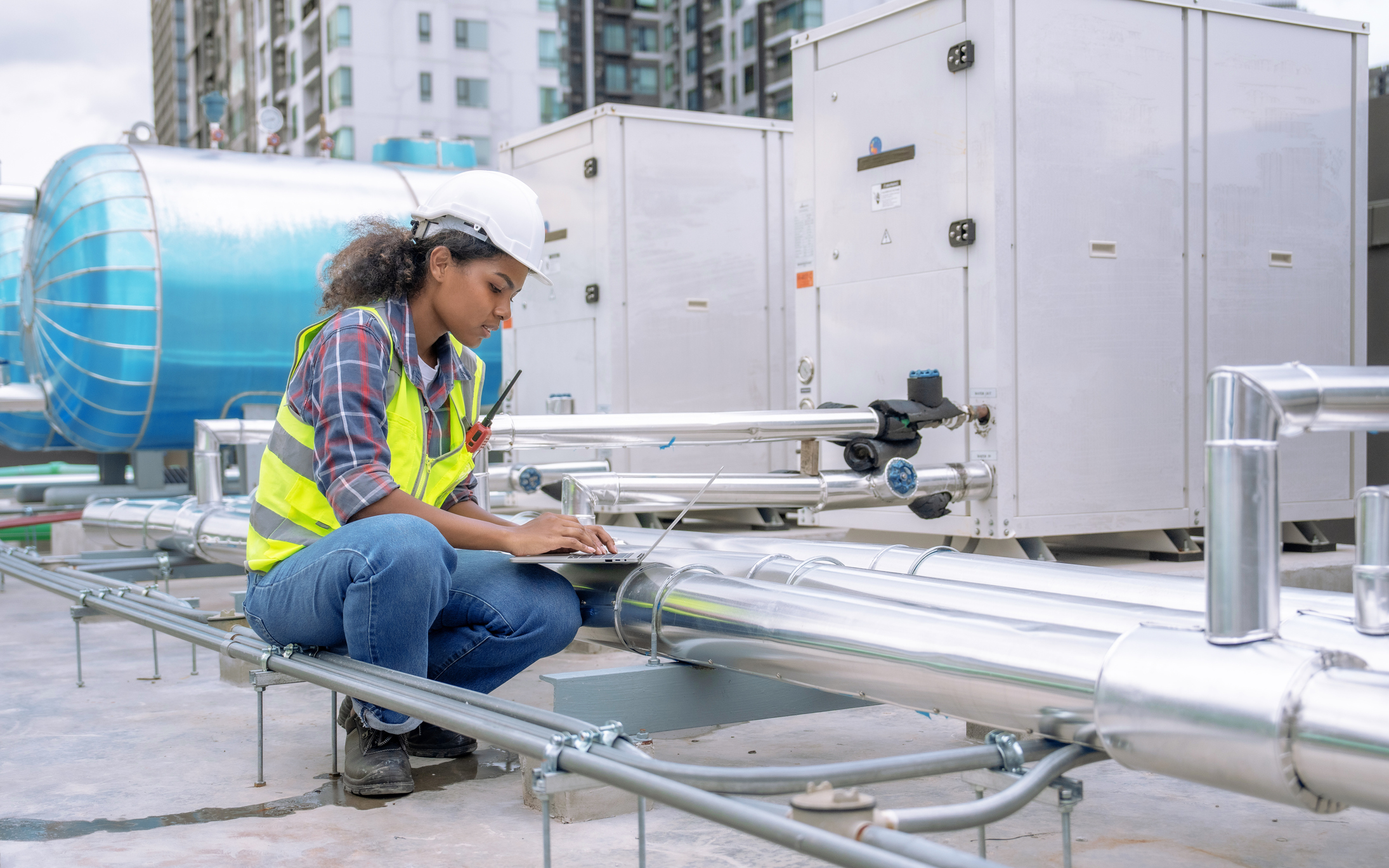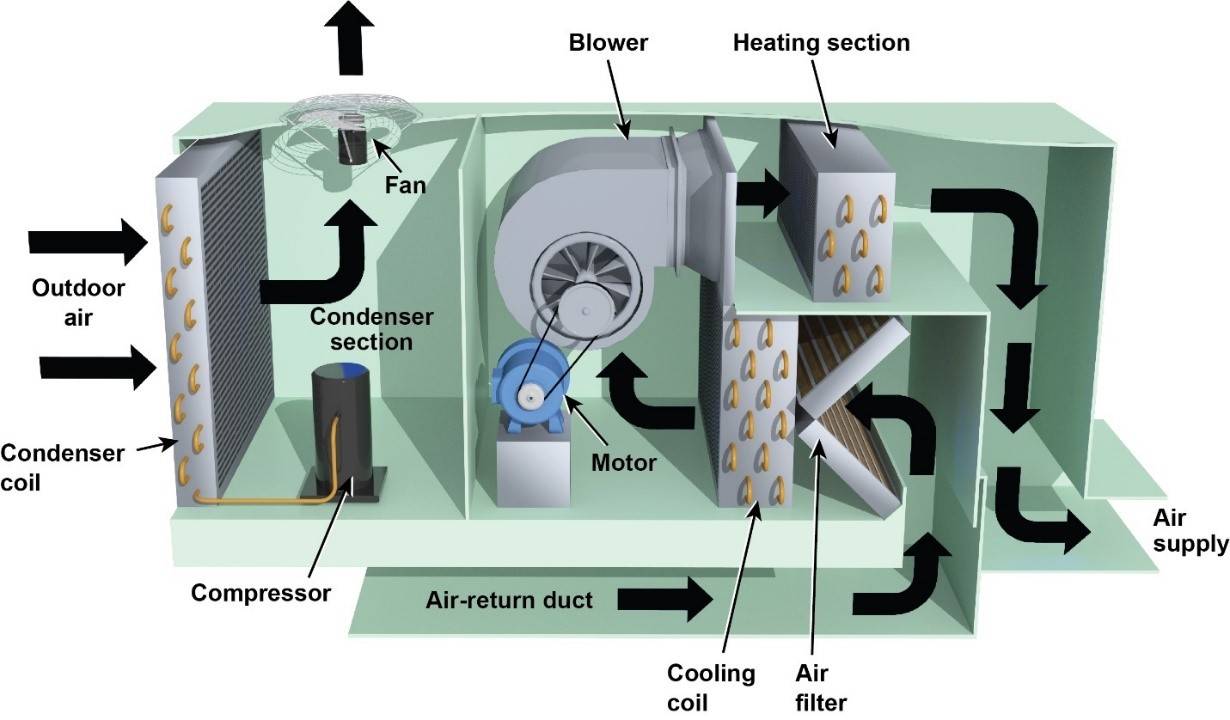HVAC Contractor for Reliable Heating & Cooling Services
An In-Depth Take A Look At Cooling And Heating Solutions and Their Effect On Energy Effectiveness and Cost Savings
With technical improvements like wise thermostats and high-efficiency elements, the capacity for optimizing system performance is vast. As we check out the elaborate relationship between HVAC systems and operational prices, including the change towards environmentally pleasant alternatives, the inquiry develops: how can these strategies be effectively implemented to optimize both financial and eco-friendly benefits?

Importance of HVAC Solutions
a/c systems are an important component of modern-day structures, playing an important role in keeping comfy and healthy and balanced interior environments. These systems, encompassing heating, air, and air flow conditioning, are crucial for controling temperature, moisture, and air top quality, consequently ensuring the well-being of residents. Efficient HVAC systems contribute considerably to producing an optimal interior climate, which is critical for both household and industrial rooms.
In industrial buildings, heating and cooling systems are essential to giving a safe and efficient environment. By regulating interior climate problems, these systems help stop the development of mold and the spread of airborne impurities, thus safeguarding the health and wellness of customers and employees. Furthermore, in domestic setups, HVAC systems boost living problems by supplying constant thermal comfort and boosting indoor air quality, which is essential for general wellness.
In addition, the design and upkeep of HVAC systems have a straight influence on energy intake and operational costs. Effectively developed and preserved systems can significantly decrease energy usage, resulting in reduced energy costs and a smaller sized carbon impact. The performance of these systems therefore plays a crucial role in promoting sustainability and energy conservation within buildings, highlighting their importance in the contemporary building landscape.
Advances in HVAC Modern Technology
Advancement in a/c technology is reinventing the way buildings take care of indoor environments, ushering in a new period of performance and control. Current advancements have focused on enhancing energy consumption while enhancing customer comfort. One notable growth is the integration of smart thermostats, which make use of fabricated intelligence to learn tenancy patterns and change temperatures appropriately, decreasing unnecessary power use.
Variable Refrigerant Circulation (VRF) systems represent another significant leap onward. These systems enable for specific temperature control in different areas of a building, enhancing convenience and decreasing power waste. VRF innovation is especially useful for big industrial rooms, using flexibility and scalability.
In addition, the introduction of Internet of Things (IoT) devices has actually transformed HVAC systems right into interconnected networks capable of real-time data collection and evaluation. This connection enables anticipating maintenance, making certain systems operate at peak performance and lessening unexpected downtime.
Furthermore, innovations in materials and style, such as the usage of high-efficiency coils and compressors, have enhanced total system efficiency - Heating Contractor. The adoption of ecologically pleasant cooling agents also highlights the sector's dedication to sustainability
These technological innovations are essential in decreasing operational expenses and ecological impact, setting new criteria for constructing climate administration.
HVAC Maintenance and Efficiency
Ensuring optimal performance of a/c systems prolongs past technical innovations; it also hinges on effective maintenance practices. Routine maintenance is crucial for sustaining performance, decreasing power usage, and expanding the life period of a/c systems. The primary objective is to make certain that all components operate at their peak potential, consequently decreasing power wastefulness and keeping regular interior convenience levels.
Regular upkeep tasks, such as cleansing or replacing air filters, examining refrigerant levels, and inspecting ductwork for leakages, are crucial for preventing unneeded strain on the system. Filthy or clogged filters can obstruct airflow, creating the system to function more challenging and take in even more power. Furthermore, inadequate cooling agent degrees can lower cooling efficiency, bring about greater operational expenses.
Furthermore, routine examinations by certified specialists can determine potential concerns prior to they rise into expensive repairs or system failures. These assessments usually consist of inspecting electrical links, adjusting thermostats, and making sure the overall honesty of the HVAC system. By resolving small issues early, property owners and businesses can avoid unforeseen breakdowns and boost energy efficiency.
Affordable HVAC Solutions
For those aiming to obtain one of the most out of their air flow, air, and heating conditioning systems without breaking the bank, checking out affordable cooling and heating solutions can make a substantial distinction. One immediate procedure is to purchase programmable thermostats, which enable individuals to set details temperatures for various times of the day, maximizing power use and lowering unneeded usage. By automating temperature level adjustments, home owners can achieve considerable cost savings on energy bills.
Regular maintenance is one more important element of cost-efficient cooling and heating monitoring. home depot hvac service Guaranteeing that filters are cleaned up or replaced routinely, ductwork is secured, and devices are serviced by experts can protect against costly fixings and improve system longevity. Preventive maintenance not only keeps system efficiency but also helps in preventing unanticipated malfunctions that can bring about pricey emergency situation repairs.
Additionally, retrofitting existing systems with energy-efficient elements, such as variable rate electric motors or high-efficiency compressors, can be a prudent investment. These upgrades improve operational performance, minimize power use, and can usually be applied at a portion of the expense of a full system replacement.
Environmental Influence Decrease
Lowering the ecological influence of cooling and heating systems straight from the source is vital in today's pursuit of sustainable living. Cooling and heating systems are substantial contributors to energy intake, representing nearly 40% of energy use in commercial structures. This power need commonly relies upon fossil fuels, causing greenhouse gas emissions and environmental degradation. Transitioning to a lot more reliable systems, such as those utilizing sustainable energy sources, can substantially reduce these influences.
Technical advancements in HVAC design and procedure, including the combination of smart thermostats and energy-efficient heatpump, are crucial in minimizing carbon impacts. These technologies enable enhanced energy use, lessening wastage and enhancing overall system efficiency. Additionally, taking on routine maintenance techniques ensures heating and cooling systems operate at peak effectiveness, additional cutting unneeded energy intake.
Moreover, the use of eco-friendly refrigerants is essential, as traditional cooling agents, like CFCs and HCFCs, have been terminated due to their ozone-depleting residential properties. Modern alternatives, such as hydrofluoroolefins (HFOs), deal decreased environmental dangers, aligning with international environmental procedures. By embracing these lasting methods, a/c services can play a transformative role in decreasing environmental impacts, promoting energy performance, and promoting an extra sustainable future.
Final Thought

Additionally, the layout and upkeep of A/c systems have a straight effect on power intake and functional expenses. Routine upkeep is crucial for sustaining efficiency, decreasing energy usage, and extending the life span of HVAC systems. Cooling and heating systems are considerable contributors to energy consumption, accounting for virtually 40% of power usage in commercial structures. In addition, taking on regular maintenance practices ensures HVAC systems run at peak performance, additional cutting unnecessary energy intake.
The shift to ecologically pleasant Cooling and heating systems additionally minimizes functional costs and promotes sustainability. (Heating Contractor)